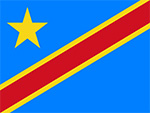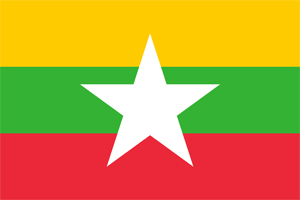Water Security for All
UNICEF
(
United Nations / Multilateral body
)
#SDGAction51210
Description
Today, there are 1.42 billion people – including 450
million children – who live in areas of high or
extremely-high water vulnerability.
For too many people, drinking water services are not
safe and affordable. The situation is becoming more
challenging due to climate change, which can cause
droughts, floods and rising sea levels. These
problems can be addressed with the right
infrastructure, but for too many people water services
and communities are insufficiently resilient to climate
change.
Similarly, for many communities, there is a lack of
forward planning to prevent water scarcity crises
before they strike.
Water is also linked with another type of crisis – violent
conflict. In fact, water insecurity creates a vicious circle
with other drivers of conflict. Water can be the starting
cause of conflicts, particularly where it is scarce. And once
conflicts have begun, they can shift patterns of water use,
as populations are displaced and move to new locations.
With private and public sector partners, UNICEF is responding
to each of the critical water security challenges we face today.
UNICEF is facilitating safe and affordable drinking water
services. To achieve the greatest impact, we work with
governments, providing them with expertise on developing
policies and budgets for water, as well as technical assistance
on the water systems themselves. From 2018-2021 UNICEF
reached 69.9 million people with safe water services.
We are also building the climate resilience of water services
and communities. UNICEF ensures that water services can
withstand climate-related events, such as droughts and floods,
and are operated with low carbon energy sources, such as
solar power. From 2019-2021, UNICEF directly supported the
construction of 4,257 solar-powered water systems.
Preventing water scarcity crises through early action is another
vital area of work. We support water resource assessments,
sustainable groundwater abstraction, efficient water use, and
drought warning systems. These early actions help prevent
situations in which water supplies are fully depleted.
Finally, UNICEF believes in the power of facilitating water
cooperation for peace and stability. We work to ensure water
supplies are equitably distributed and do not contribute to
tensions between communities. We also work in conflict
zones, to prevent attacks on water infrastructure and
personnel, and to ensure all people affected by crisis can
access water.
As part of UNICEF’s Strategic Plan for 2022-2025, we aim to
reach 50 million people with climate-resilient and safe
drinking water, and support governments and partners in the
transition towards a climate-resilient sector.
With support for the four investment packages developed,
and through our network of partners in the WASH sector,
we aim to contribute to the even higher global targets
included in the Water Security for All initiative. The Water
Security for All initiative aims to collectively reach 450 million
children and their families (1.42 billion people) in areas of
high or extremely high-water vulnerability with resilient
solutions.
The Water Security for All initiative is a key contribution to
Sustainable Development Goal 6.1: universal and equitable
access to safe and affordable drinking water for all by 2030.
UNICEF's Public and Private Sector Partners and other UN Agencies.
SDGS & Targets
Goal 6
Ensure availability and sustainable management of water and sanitation for all
6.1
By 2030, achieve universal and equitable access to safe and affordable drinking water for all
6.1.1
Proportion of population using safely managed drinking water services
6.2
By 2030, achieve access to adequate and equitable sanitation and hygiene for all and end open defecation, paying special attention to the needs of women and girls and those in vulnerable situations
6.2.1
Proportion of population using (a) safely managed sanitation services and (b) a hand-washing facility with soap and water
6.3
By 2030, improve water quality by reducing pollution, eliminating dumping and minimizing release of hazardous chemicals and materials, halving the proportion of untreated wastewater and substantially increasing recycling and safe reuse globally
6.3.1
Proportion of domestic and industrial wastewater flows safely treated
6.3.2
Proportion of bodies of water with good ambient water quality
6.4
6.4.1
Change in water-use efficiency over time
6.4.2
Level of water stress: freshwater withdrawal as a proportion of available freshwater resources
6.5
By 2030, implement integrated water resources management at all levels, including through transboundary cooperation as appropriate
6.5.1
Degree of integrated water resources management
6.5.2
Proportion of transboundary basin area with an operational arrangement for water cooperation
6.6
6.6.1
Change in the extent of water-related ecosystems over time
6.a
6.a.1
Amount of water- and sanitation-related official development assistance that is part of a government-coordinated spending plan
6.b
Support and strengthen the participation of local communities in improving water and sanitation management
6.b.1
Proportion of local administrative units with established and operational policies and procedures for participation of local communities in water and sanitation management
SDG 14 targets covered
| Name | Description |
|---|
Deliverables & Timeline
Resources mobilized
Partnership Progress
Feedback
Action Network

Timeline
Entity
SDGs
Region
- Africa
- Europe
- Asia and Pacific
- Latin America and the Caribbean
- West Asia
- Global
Other beneficiaries
Children and their communities
Website/More information
Countries
















































Contact Information
Farai , Senior Advisor Water and Climate Resilient WASH

